8 signs and symptoms of menopause
Are you having sleeping problems? Hot flashes? Mood changes? Here’s what you need to know.
Updated on April 21, 2023

As your body transitions away from the reproductive years, hormone changes can influence your brain, your bones, even your heart.
Menopause symptoms vary from person to person—some people experience relatively few symptoms, while for others menopausal changes can feel more challenging. Here are eight common symptoms of perimenopause and menopause.
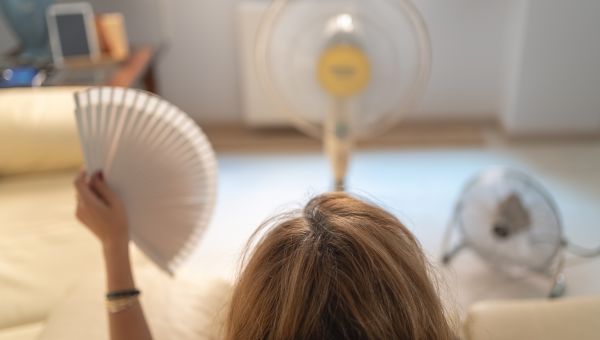
Hot flashes and night sweats
About three in four people going through menopause experience hot flashes The exact cause of hot flashes is unknown, but some experts think low estrogen affects an area of the brain that controls body temperature, triggering these symptoms. Basically, the brain thinks the body is overheating and tells the nervous system to release body heat as soon as possible. The result is intense hot spells that can cause your skin to flush, along with sweating. The quicker you go through menopause, the more intense symptoms may be.
Smoking and stress can raise your risk of hot flashes and night sweats. About 20 percent of people going through menopause will have hot flashes that impair their quality of life, says JoAnn Manson, DrPH, MD, chief of preventive medicine at Brigham and Women's Hospital in Boston. If hot flashes are affecting your daily life, talk to your doctor about potential treatments, including hormone replacement therapy.
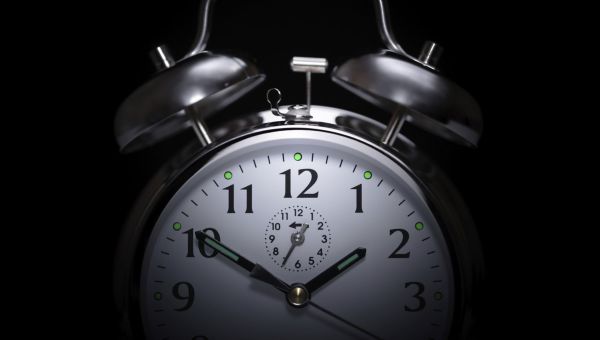
Insomnia
Getting a good night's sleep can be a major challenge for people who are going through menopause, for multiple reasons:
During the menopause transition, production of estrogen and progesterone (a sleep-promoting hormone) fluctuate then decline, which can make falling and staying asleep more difficult.
Hot flashes can jolt you awake. Then, physical discomfort and night sweats can keep you from falling back to sleep. Urinary symptoms are common to people going through menopause, which can lead to multiple trips to the bathroom during the night to urinate. During menopause, the risk of sleep apnea, or interrupted breathing during sleep, increases.
Add midlife stresses, such as work and family, and a good night’s sleep can seem hard to come by for many people going through menopause.

Mood changes
Fluctuating hormone levels can also cause emotional symptoms. Sadness, irritability, fatigue, anxiety, and aggressiveness are some of the feelings that can crop up during menopause.
“You may cry at the drop of a hat over something that on a different day wouldn’t bother you,” says Judith Volkar, MD, a gynecologist in Columbia, South Carolina.
While mood changes are common during the menopause transition, it is important to watch for signs of clinical depression (prolonged sadness, fatigue, loss of interest in things you formerly enjoyed), and get help if needed. If you have a personal history of mood disorders or other psychiatric conditions, you may be more prone to depression during menopause.

Sexual changes
Many people find that sex during menopause has its benefits—the kids may finally be out of the house, or you may have more time for sex. On the other hand, hormonal changes can bring some challenges. Lower levels of estrogen can cause your vulva and vaginal walls to become dry, thin, and fragile, and sex may feel less comfortable. Called genitourinary syndrome of menopause (GSM), the condition affects between 27 and 84 percent of people going through menopause, according to the North American Menopause Society.
Prescription vaginal estrogen may ease symptoms, including discomfort during intercourse. Lubes and moisturizers may help, as well. Speak with a healthcare provider about treatments that could work for you.
These changes are also a great opportunity for finding new and different ways to express intimacy and affection. Talk to your partner about what works best for both of you.
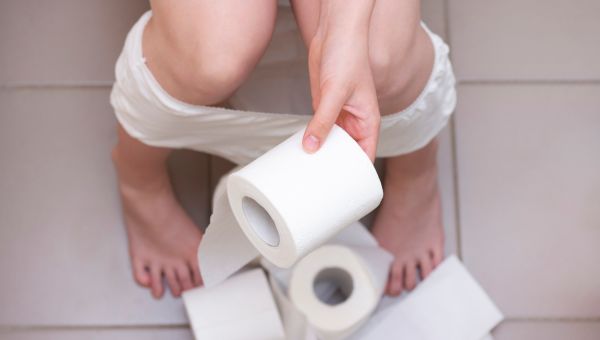
Urinary concerns
Feel like you're taking more trips to the bathroom than you used to? GSM affects how often you need to urinate, too.
Pelvic floor muscles, which are responsible for bladder control, may weaken as you get older. In addition, the ovaries begin to stop manufacturing estrogen, which helps protect the lining of the bladder and urethra (the tube that empties your urine). When the body’s production of estrogen slows down, some people may become more prone to urinary tract infections or incontinence.
That means you may have a tough time holding your bladder long enough to get to the bathroom (urinary urge incontinence), or you might experience a trickle when you cough, laugh, or sneeze (urinary stress incontinence). There are treatments for all of these concerns, including pelvic floor exercises, pessaries, and surgery. Talk to your doctor about what options may work for you.

Cardiovascular changes
The risk for heart disease rises once you hit age 50. While some of that may be related to menopause, that’s hardly the entire picture, explains Margery Gass, MD, former executive director of The North American Menopause Society, who points out that the change is a product of both age and lifestyle. For example, you may be less physically active than you were in your 30s and 40s or you may be drinking more alcohol with dinner, both of which can lead to weight gain. Still, there are some changes that seem to be related to the hormonal changes of menopause, such as an increase in total cholesterol, LDL cholesterol, and triglycerides as well as increased blood pressure—all of which are risk factors for heart disease.
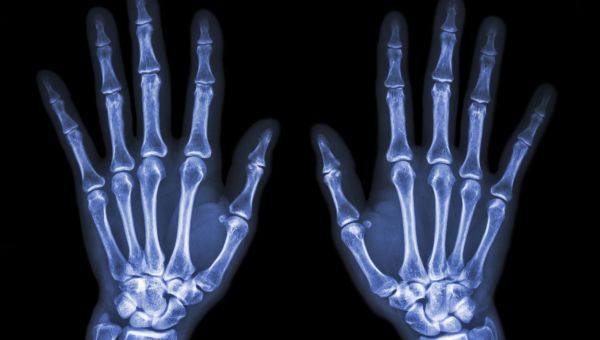
Bone loss
Though it may decline slightly between age 30 and menopause, bone density doesn’t truly decline until after menopause, when lower levels of hormones such as estrogen tend to weaken bones. Because of this, people who have gone through menopause lose an average of 25 percent of their bone mass in the 10 years after the transition. As your bones become weaker and more porous, your risk of fractures and osteoporosis goes up.
The more bone you have at the time of peak bone mass, the better protected you'll be once bone loss begins. Eating foods rich in bone-building nutrients can help—especially protein, calcium, potassium, and vitamin D.

Brain fog
The so-called brain fog of menopause can be very real, Dr. Gass says. Between one- and two-thirds of people going through menopause report forgetfulness and other symptoms like difficulty concentrating. Starting during perimenopause, you may have a tougher time staying focused, solving difficult tasks or retaining new information. But there may be good news, according to Gass, who says that some studies suggest these memory lapses last only as long as menopause.

Going forward
While the menopause transition may bring challenges, many find this stage to be marked by a greater sense of confidence, control, and personal direction. There are many things you can do to make navigating menopause easier. Adopting healthy habits and taking care of your physical and mental health—including paying attention to and getting help for symptoms—can make a big difference in how smoothly you journey through this time of change.

The North American Menopause Society. Menopause FAQS: Hot Flashes. 2020.
Mayo Clinic. Hot flashes. April 24, 2020.
WomensHealth.gov. Menopause symptoms and relief. May 22, 2018.
P Proserpio, S Marra, et al. Insomnia and menopause: a narrative review on mechanisms and treatments. Climacteric. 2020. Volume 23, Issue 6.
RL Smith, JA Flaws, MM Mahoney. Factors associated with poor sleep during menopause: results from the Midlife Women's Health Study. Sleep Medicine. May 2018, Volume 45, pages 98-105.
Johns Hopkins Medicine. How Does Menopause Affect My Sleep? Accessed December 18, 2020.
E Perger, P Mattaliano, C Lombardi. Menopause and Sleep Apnea. Maturitas. June 2019. Volume 124, pages 35-38.
AG Mirer, T Young, et al. Sleep-disordered breathing and the menopausal transition among participants in the Sleep in Midlife Women Study. Menopause. February 2017. 24(2), 157–162.
M Azizi, E Fooladi, et al. Biopsychosocial Risk Factors of Depression in the Menopausal Transition: A Narrative Review. Iranian Journal of Psychiatry and Behavioral Sciences. July 22, 2018. 12 (4); e12928.
CN Soares. Can depression be a menopause-associated risk? BMC Medicine. December 2010. 8(1):79.
The North American Menopause Society. Changes in the Vagina and Vulva. Accessed December 18, 2020.
SS Faubion, SA Kingsberg, et al. The 2020 genitourinary syndrome of menopause position statement of The North American Menopause Society. Menopause: The Journal of The North American Menopause Society. 2020. Vol. 27, No. 9, pp. 976-992.
E Moral, JL Delgado, et al. Genitourinary syndrome of menopause. Prevalence and quality of life in Spanish postmenopausal women. The GENISSE study. Climacteric. 2018 Apr;21(2):167-173.
J Gandhi, A Chen, et al. Genitourinary syndrome of menopause: an overview of clinical manifestations, pathophysiology, etiology, evaluation, and management. American Journal of Obstetrics & Gynecology. 2016 Dec;215(6):704-711.
G Kołodyńska, M Zalewski, & K Rożek-Piechura. Urinary incontinence in postmenopausal women - causes, symptoms, treatment. Przegladmenopauzalny = Menopause review. April 2019. 18(1), 46–50.
American Heart Association. Menopause and Heart Disease. July 31, 2015.
S Reddy Kilim, & SR Chandala. A comparative study of lipid profile and oestradiol in pre- and post-menopausal women. Journal of clinical and diagnostic research: JCDR. August 2013. 7(8), 1596–1598.
Memorial Hermann. Heart Disease and Age. Accessed December 18, 2020.
BL Abramson, K Srivaratharajah, et al. Women and Hypertension: Beyond the 2017 Guideline for Prevention, Detection, Evaluation, and Management of High Blood Pressure in Adults. American College of Cardiology. July 17, 2018.
American Academy of Orthopaedic Surgeons. Healthy Bones at Every Age. Accessed December 18, 2020.
NIH Osteoporosis and Related Bone Diseases National Resource Center. Osteoporosis: Peak Bone Mass in Women. October 2018.
WomensHealth.gov. Osteoporosis. August 30, 2017.
S Marshall & M Rees. Managing menopause and post-reproductive health with nutrition and lifestyle. Nutrition & Dietetics: Journal of Dietitians Australia. August 26, 2020. Volume 77, Issue S1.
J Ha, SA Kim, et al. The association of potassium intake with bone mineral density and the prevalence of osteoporosis among older Korean adults. Nutrition research and practice. February 14, 2020. 14(1), 55–61.
JR Sliwinski, AK Johnson, & GR Elkins, G. R. Memory Decline in Peri- and Post-menopausal Women: The Potential of Mind-Body Medicine to Improve Cognitive Performance. Integrative medicine insights. 2014. 9, 17–23.
R Thurston. Cognition and the menopausal transition: is perception reality? Menopause. December 2013. Volume 20, Issue 12, p1231-1232.
More On


video

article
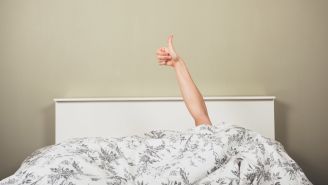
slideshow


video


video
